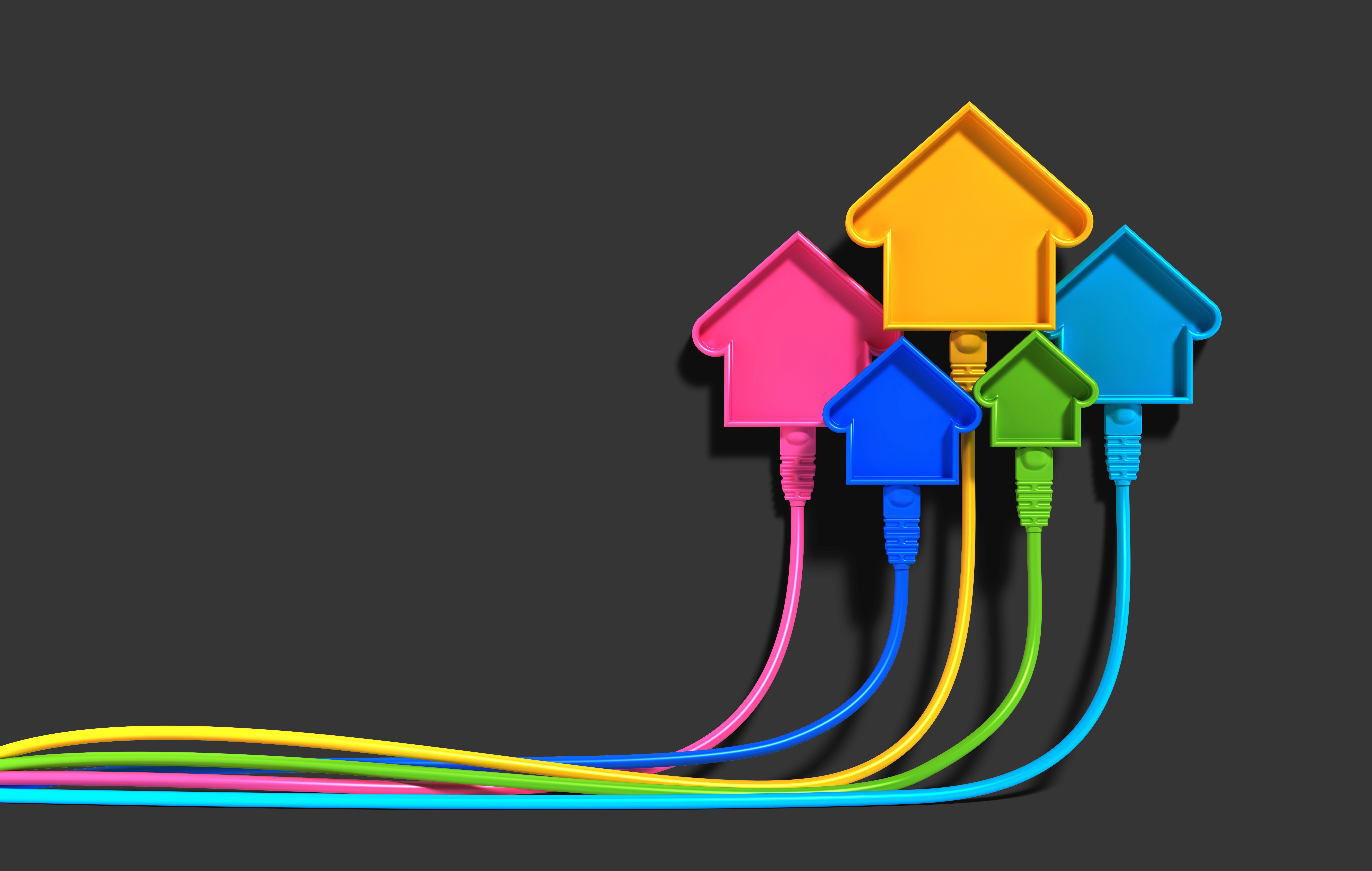AI Is Writing the Next Chapter in PropTech & Real Estate
Photo Credit: HAKINMHAN - iStock
For years, real estate has been known for long cycles, slow adoption, and manual work that didn’t always scale. Recent economic pressure, higher interest rates, cautious investors, and the collapse of several high-profile startups didn’t help, creating a cooling period across PropTech. But during that same window, global AI investment actually exploded. What started as two separate trends is now merging into one fast-moving shift.
Across North America, Europe, and the Middle East, PropTech startups are leaning into AI to solve real operational and financial pain points. Investors are gradually regaining confidence, adoption is rising, and we’re seeing new business models built around intelligence rather than novelty. This blog highlights the forces driving this shift, offers examples and data that show where the momentum is heading, outlines what it means for the industry, and looks ahead at what comes next.
PropTech’s Reset Meets AI’s Breakout Moment
The last few years have been a reset period for PropTech, with Propmodo reporting funding has dropped by more than half from its 2021 peak. Interest-rate swings and slow sales cycles made it tough for young companies to scale, meanwhile, global AI funding more than doubled, creating a rare moment where one part of the tech ecosystem pulled back and another surged ahead.
That contrast has made for a massive plot twist in the PropTech story.
Buena is one of the best examples, highlighted in Sifted’s Proptech 2025 briefing, the company acquired more than twenty property management firms in two years and layered AI across its operations. Tasks that once took hours, like rent processing, accounting, and annual reporting, now move quickly in the background. Property managers can spend more time on tenant support and long-term planning. The result is real scale. Buena manages sixty thousand units and has a growing waitlist of landlords.
This approach shows what the next wave of PropTech looks like. Instead of chasing the next big consumer app, founders are mixing operational consolidation with smart automation. Investors are responding. According to CRETI in a report published by Commercial Observer, global PropTech firms raised $11.5 billion in the first nine months of 2025, surpassing totals from both 2023 and 2024.
AI’s influence here is clear. It reduces development costs, speeds up experimentation, improves product quality, and helps companies with complex workflows run more efficiently. The industry is shifting from experimentation to practical, durable solutions, with AI as the tool enabling the shift.
How AI Is Creating Real Value Across the Real Estate Lifecycle
The impact of AI in real estate is no longer hypothetical, it’s measurable across investment, operations, energy management, construction, and customer experience. Blogarama’s PropTech AI report shows that real estate companies using AI have seen more than a 10 percent increase in net operating income.
Here are the areas seeing the biggest changes:
1. Predictive analytics and smarter valuation
Modern machine learning models can analyze thousands of variables at once, far beyond traditional comp-based appraisals. This includes:
• micro-local factors like traffic, noise, and neighborhood density
• macroeconomic signals such as interest rates and migration patterns
• geospatial indicators like zoning changes and infrastructure plans
These models have reached 63 percent accuracy in valuation forecasting, strengthening underwriting and reducing risk.
2. Autonomous building operations and maintenance
AI and IoT sensors now predict equipment failures before anyone notices an issue. This leads to:
• fewer emergency repairs
• longer system lifecycles
• more predictable budgets
• reduced downtime
AI-powered energy systems can also cut utility costs by 20 percent or more by adjusting usage in real time.
3. Faster inspections and audits
Computer vision tools can review roof scans, façade images, and mechanical rooms instantly, removing human error and shrinking multi-day inspections to minutes.
4. Streamlined compliance and documentation
AI tools can summarize dense legal and regulatory documents, allowing teams to review entire portfolios in minutes instead of weeks.
5. Customer experience and digital twins
AI chatbots help schedule tours, screen leads, and manage routine requests.
Digital twins now support:
• pre-construction planning
• remote tours
• scenario modeling
• marketing visuals
These capabilities are steering the industry toward a data-first approach. Risk becomes more predictable, performance becomes easier to measure, and insights are available as decisions are being made.
What This Means for Builders, Owners, Investors, and Operators
1. Durability matters more than novelty
Investors are prioritizing companies built to withstand long sales cycles and slow-moving decision environments. As Second City Ventures noted in Propmodo, the best technology in the world cannot bypass the realities of selling into real estate. AI accelerates product development, but customer acquisition and trust still determine success.
2. Data infrastructure becomes the new competitive advantage
Fragmented systems and siloed databases remain a major roadblock. Companies need unified data environments and clear governance before they can deploy AI effectively. The firms that take data seriously will outperform those that rely on quick fixes.
3. Global PropTech leadership is shifting
Sifted points to rapid innovation in cities like Dubai and Riyadh, where development moves faster and regulations are more flexible. London continues to act as a major hub, while New York and San Francisco stay competitive but face talent challenges. Markets that protect legacy structures may struggle to keep pace.
4. PropTech will shape the future of cities
Urban Neuron’s Luke Graham highlights trends that will define future development, including age-inclusive design, in-home health tech, vertical farming, atmospheric water generation, and more efficient energy systems. PropTech is expanding beyond building management into wider city infrastructure and sustainability.
What Comes Next for AI and PropTech
Looking ahead, four developments are likely to drive the next decade:
1. AI becomes the operating system for real estate
Every part of the lifecycle, from acquisitions to tenant services, will increasingly rely on predictive intelligence.
2. Startups shift from speed to sustainability
Expect more capital-efficient companies focused on durability, disciplined operations, and measured growth.
3. Intelligent buildings become standard
Buildings will adjust themselves automatically based on occupancy, cost, weather, and performance. Diagnostics and compliance checks will run continuously.
4. AI expands real estate’s economic potential
Blogarama’s reporting estimates up to $180 billion in potential value through dynamic pricing, new asset classes, personalized services, and fully integrated digital operations.
This shift is larger than a simple upgrade. It touches every corner of the real estate lifecycle and will define how the industry grows over the next decade.
The convergence of AI and PropTech represents one of the most meaningful transformations in the built environment. What began as basic digitization is evolving into an era of operational intelligence, proactive management, and sustainable design. Investor expectations, customer needs, and regulatory trends are aligning behind this shift.
AI appears to be changing the fundamentals of property, giving companies a clearer, more measurable way to manage those fundamentals at scale. The organizations that invest in strong data foundations, resilient operations, and intelligent workflows will set the pace for the next era of real estate.
As global populations rise and cities evolve, buildings will take on more responsibility for efficiency, safety, and long-term sustainability. The future of real estate is more precise, more predictable, and more connected, and AI is the catalyst driving that direction forward.















